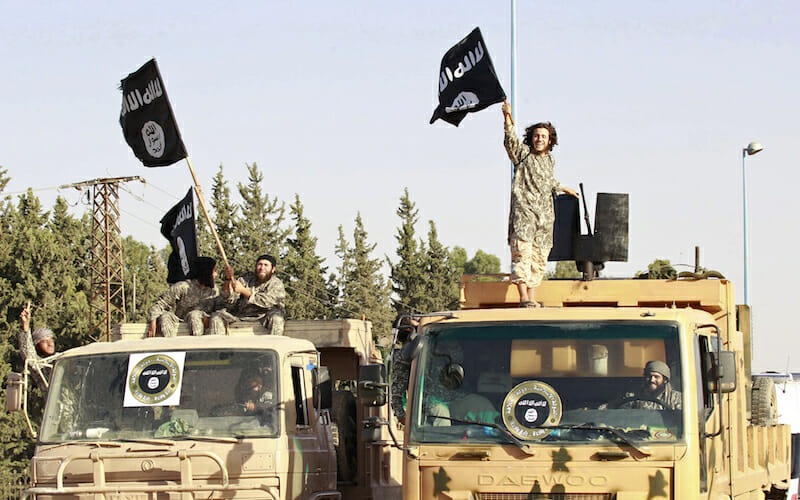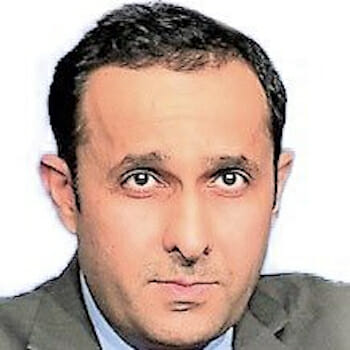
Secularism Alone Will Not Cure Arab Countries’ Ills
In an interview with the Sunday Times, Syrian President Bashar al-Assad exploited fears of the West when he claimed that there were two choices for his country’s future, either his Ba’athist regime or al-Qaeda. “If you worry about Syria in that sense, you have to worry about the Middle East because we are the last bastion of secularism in the region. If you worry about the Middle East, the whole world should be worried about its stability.” Since the nearly six-month-old Qatar crisis erupted, the UAE’s ambassador to Washington, Yousef al-Otaiba, said in a PBS interview that Abu Dhabi and its allies blockading Qatar seek “more secular, stable” governments in the Arab world. Assad and Otaiba, who said that Doha “fundamentally opposed” secularism, both took advantage of these interviews to target Qatar.
Indeed, governments throughout the Middle East and North Africa (MENA) that have cracked down on Islamist movements for decades have appealed to Western audiences. By claiming to champion secularism while opposing Islamist extremism, numerous MENA states have sought to sell themselves as bulwarks against the forces of radical Islam and terrorism.
It is important for Westerners to recognize that the meaning of secularism differs significantly from country-to-country, exemplified by America’s “separation of church and state,” France’s laïcité, and Turkey’s Kemalism. Doubtless, certain regimes in the MENA region call themselves secular, yet the real identities are perhaps quite debatable.
For example, many Western pundits have posited that Egypt’s Abdel Fatah el-Sisi is restoring Egypt’s secular authoritarian past dating back to Gamal Abdel Nasser’s regime. Yet Egypt’s leader, who took power in 2013 with the full support of Egypt’s Salafist party and who has targeted secular liberals in addition to Islamists since ousting Morsi, is more committed to forming a “hybrid regime that would combine Islamism with militarism” in the style of Pakistan’s Muhammed Zia ul-Haq who took power in 1977, according to Robert Springborg.
In Libya many labeled Muammar Gaddafi’s regime as secular, yet the leader outlawed alcohol, night clubs, and prostitution in the North African country after the 1969 revolution. Today it is contradictory for General Khalifa Haftar to seek Western support based on the premise that the Libyan National Army is combatting violent Sunni fundamentalists while the former Gaddafi regime figure fosters deep relations with certain Salafists (Madkhlists) whose participation in Libyan politics preceded the 2011 revolution.
In the UAE, the authorities’ interpretation of sharia law has led to Western rape victims in Dubai being jailed for “extra-marital sex” despite al-Otaiba hailing the emirates as a bastion of secularism. In Bahrain, where authorities recently ordered the dissolution of the archipelago state’s dominant secular society (the National Democratic Action Society – Wa’ad), the government derives its legitimacy from Islam and sharia law is a source of the legal system.
Regardless of how to appropriately define secularism, the harsh rule of regimes that identify as secular has fueled long-term crises and prevented progress across the MENA region. Building a “civil state” (defined as “the union of individual men in civil society under a system of laws and a magistracy, or magistracies, charged with the administration of the laws”) is perhaps the most important aspect of the economic, social, political, cultural, and technical challenges facing Arab and Islamic societies today. Currently, the battle across the MENA region is not about identity politics (Islamist versus secular, etc.) but about governance, transparency, accountability, rule of law, fair distribution of the state’s resources, and fostering new economic opportunities for unemployed youth.
If history is any guide, an Arab state’s secular identity will not thwart the closed nature of its political practices from exacerbating the major problems—from joblessness to graft and stifled economic growth—that plague the MENA region. Creating more accountable governments in the Arab world requires democratic reforms that many secular regimes staunchly oppose. Such changes in the MENA region will also require abandoning a mentality that whoever challenges regime narratives is a foreign agent, an external enemy, or a traitor who must be eliminated either physically or from public discourse.
